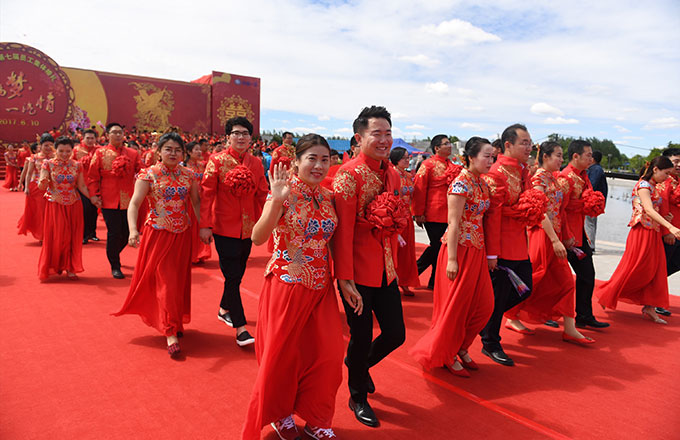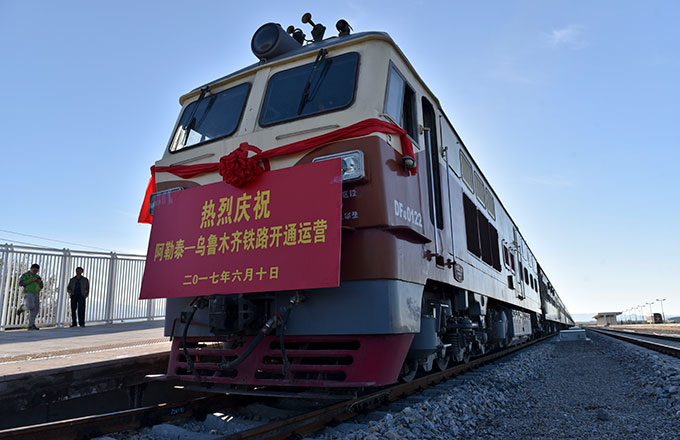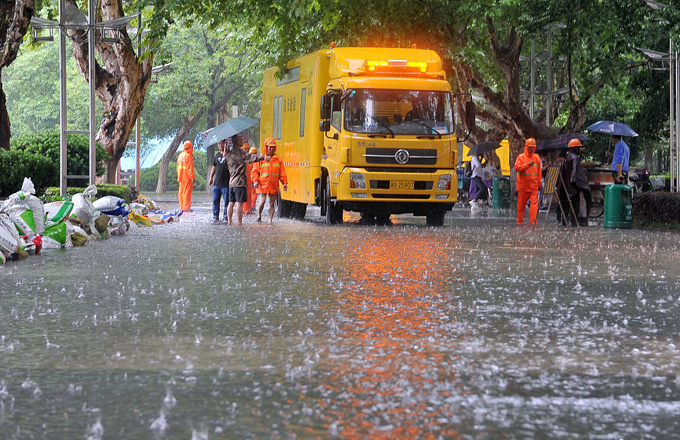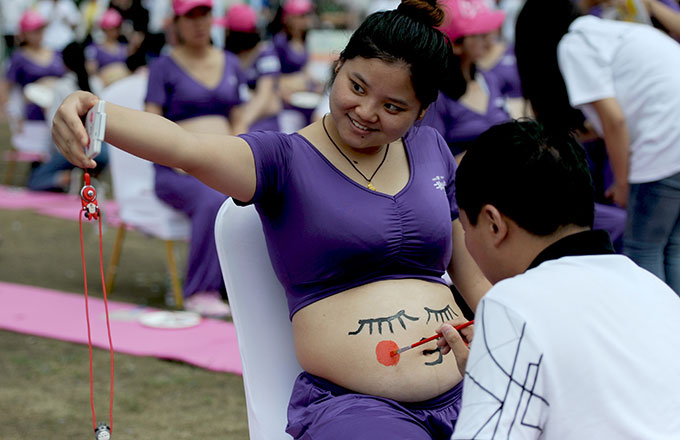The army should subordinate itself to the general interest, which is to develop the country
November 1, 1984
I want to talk about the question of considering the general interest. By the general interest I mean our national development. Our nation is full of vitality and is thriving in every sector. Even many foreigners share this view and say so. That has been the situation for the last five years, and particularly for the last three years when our rural policies began to yield results. This increases our confidence. Why is it that we are now in a position to launch reform in the cities or, as we say, to dare "touch the tiger's rump"? The reform is not without certain risks. A recent example was the run on consumer goods in Beijing. And it was not confined to Beijing; the same thing happened in many other cities too. We foresaw all this. Why are we not afraid of it? Because we have quite a plentiful supply of consumer goods to fall back on, the sight of which reassures the people. The goal set by the Twelfth National Congress of the Party is to quadruple the annual gross value of our industrial and agricultural output by the year 2000, a goal which, I can say with certainty, will be achieved. This is a matter of utmost importance. Although our per capita GNP will not amount to much and will mean only a comparatively comfortable living standard, in terms of total GNP, it will mean a trillion US dollars! Furthermore, our country will become more powerful. That is the double significance of quadrupling our industrial and agricultural output.
On the one hand we shall open to the outside world, and on the other we shall invigorate our domestic economy. Reform means invigorating the economy. And doing that means opening up at home, which is another aspect of the same policy. Some of our people are not clear about our policy of opening to the outside. They think we mean only opening to the West, whereas in fact we mean opening to three regions. One is the developed countries in the West, which constitute our chief source of foreign funds and technology. The second is composed of the Soviet Union and the East European countries. Even though state-to-state relations are not normal, exchanges can go on, for instance, in commercial transactions, technology and even in joint ventures and technical innovations -- innovations in the 156 projects [which were originally designed and built with the assistance of the Soviet Union], for example. They have a part to play in all these respects. The third region is the developing countries of the Third World, each of which has its special characteristics and strengths and offers enormous potentialities. Hence, opening to the outside world involves three regions, not just one. Invigorating our domestic economy and reforming our economic structure will proceed more rapidly than expected, which means a promising future. Some problems may crop up in the process. Never mind, there is nothing to be afraid of, because we shall move step by step, reviewing our work as we go, and try to correct promptly anything that goes wrong. However, there will be no fundamental changes, not with regard to major policies.
What is essential now is that the Party, government, army and people throughout the land work wholeheartedly for national development, taking it into account in everything they do. The army has its role to play here. It must do nothing harmful to the general interest, and all its work must conform to it and be governed by it. Since the development of all our armed services is tied to national development, they should devise ways to assist and actively participate in it. The air force, the navy and the Commission in Charge of Science, Technology and Industry for National Defence should divert some of their resources to foster the development of the economy. For instance, the air force can spare some airports for civilian or both military and civilian use to help the state develop civil aviation. The navy can designate some of its ports for both military and civilian use and others for civilian use only, to help increase the handling capacity of the nation's ports. Our national defence industry, which is well equipped and has a huge contingent of technicians, should be put to full use in every aspect of national development to help boost civilian production. If these things are done, they can have only good results. In short, everyone should proceed from the general interest, always bear it in mind and help develop the economy by all possible means. A developed economy will make things easier for us. Once the general situation is improved and our national strength greatly increased, it will not be too difficult for us to produce a few more atomic bombs, missiles and other pieces of modern equipment, whether for air, sea or land.
Another question is training people for both military and civilian jobs, which is also in the general interest. The army has been doing a good job in this respect and has much to its credit. That's fine. The army's efforts to train people is warmly received by local authorities. Such training will make it easier for demobilized cadres and soldiers to be transferred to civilian jobs. Comrade Yu Qiuli has told me that soldiers trained in raising pigs can readily find jobs. And drivers are in great demand. The army has trained a large number of personnel with special skills, and transferring some of them to the civilian sector would provide support for local communities.
I hope the comrades present here will encourage cadres at all levels to concern themselves with the general interest of the state, which is to develop our country over the next 20 years or, to be exact, the 16 years to the year 2000. In everything it does the army should subordinate itself to that general interest.
(Excerpt from a speech at a forum held by the Military Commission of the Central Committee of the Communist Party of China.)
(From Selected Works of Deng Xiaoping, Volume III <1982-1992>)
- China issues guidelines to develop 'all-for-one' tourism demonstration zones
- Torrential rain triggers disaster in Southwest China
- Harvest time for wheat reapers in Shanxi
- Over 200 couples marry in Changchun group wedding
- Calligraphy tops other icons of Chinese culture, WeChat data shows



















